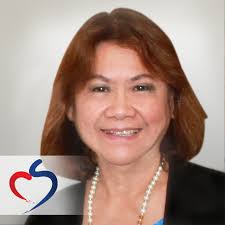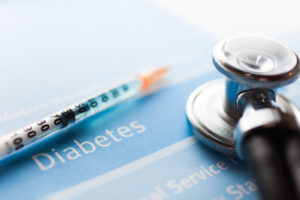Nutrition requirements @ age 50+
1Heart Caregiver Services® Supports the Simi Valley Franchisee for The Susan Geffen Event
August 1, 2015
Rose Belcina
October 4, 2015A healthy diet is the foundation for wellness at any age. When you eat the most vital foods that are appropriate for yourself, you are functionally supporting the process of overall wellness. At any age, the optimal levels of vitamins, minerals, protein, carbohydrates, fats, and water must be met to ensure reaching the highest potential quality of life.

Kids have distinct nutritional needs just as adults have. More so, among adults, seniors have more targeted nutritional requirements to ensure optimal wellness in their advancing years. Particularly, seniors require diets of nutrient-dense foods with calorie contents to match their energy needs.
The federal government, in partnership with nutrition scientists, established MyPlate for Older Adults to address the unique nutritional needs, as well as physical activity needs, of seniors.
What are the unique nutritional needs of adults, or seniors in particular?
According to Alice Lichtenstein, senior scientist and director of the Cardiovascular Nutrition Laboratory at the USDA HNRCA, a slow-down in metabolism and physical activity in older adults resulting from illnesses or accidents, genetic patterns, or social, psychological, and economic factors, may cause calorie needs to decline, but nutritional requirements remain the same or, in fact, may need to be increased in some cases.
In the USDA Food Patterns, twelve different caloric levels are represented as to the amounts of food to consume from the basic food groups and subgroups to meet recommended daily nutrient needs.
How many calories do people over age 50 need each day?
For women, it ranges from 1,600 calories, for those who live sedentary lives, to 2,200 calories, for those who live physically active lives. For men, caloric requirements range from 2,200 to 2,800, depending on how physically active their lifestyles are. It is recommended that seniors, to be physically active, have to get into at least 150 minutes of physical activity a week divided over 10 minutes several times a day.
What should compose an older adult’s nutrition diet? How much of each must be consumed on a daily basis?
Ideally, nutrition must come primarily from food, not from dietary pills or supplements. These food include:
- 1 ½ – 2 ½ cups of fruits, especially those that are deeply- colored on the inside, like peaches and berries; and 2 – 3 ½ cups vegetables that are brightly-colored, like kale, broccoli, and carrots. These provide the vitamins, minerals, and phytochemicals that are commonly deficient in older adults. They also provide fiber to keep digestion regular.
- 5 – 10 ounces of enriched and fortified whole grain breads and cereals, such as whole wheat bread and brown rice. These provide the complex carbohydrates that gives the body energy. These also lower cholesterol and blood sugar.
- 3 cups of low-fat or non-fat dairy products, such as yogurt and cottage cheese. These provide the calcium requirements for older people who are at risk of bone loss or osteoporosis.
- 5 – 7 ounces of seeds, nuts, beans, fish, poultry, lean meat and eggs.These provide proteins that are used to build and repair tissues. They help fight stress and infection.
- 22 – 36 grams of liquid vegetable oils and soft spreads that are low in saturated fats and trans fat.Saturated fats and trans fats are those that are solid at room temperature. Preferred fats are monounsaturated and polyunsaturated fats that are liquid at room temperature. Fat insulates and protects the body, and serves as a source of energy and essential fatty acids. It also carries the fat-soluble vitamins, such as vitamins A, D, E, and K around the body.
- Herbs and spices as alternatives to salt for flavouring or seasoning food.The recommended daily salt intake limit for older adults is 1.5 g of salt. Too much salt over time increases blood pressure, increases the risk of heart disease, stroke, or kidney disease. To limit salt, replace with herbs and spices.
- 5 – 8 glasses of fluids such as water and fat-free or low-lactose milk.Decline in thirst which may cause dehydration is one common issue in older adults. It’s important to have plenty of fluids each day. Fluids helps digest food, absorb nutrients from food, and get rid of the unused waste.
source: https://www.nutrition.tufts.edu
Disclaimer: 1Heart Caregiver Services Blog may contain articles about health care and medical related topics. However, no warranty is made that any of the articles are accurate. There is absolutely no assurance that any statement contained or cited in any or our articles touching on health care or medical related matters is correct, true, up-to-date or, precise, If any of the statements we mentioned about healthcare or medicine is accurate, it may or may not apply to you or your symptoms.
The health care or medical information provided on 1Heart Caregiver Services is, at best, of a general nature and cannot replace the advise of a health care/medical professional. 1Heart Caregiver Services will not take responsibility for the results or consequences in attempting to use or adopt any information presented in its blog articles.



